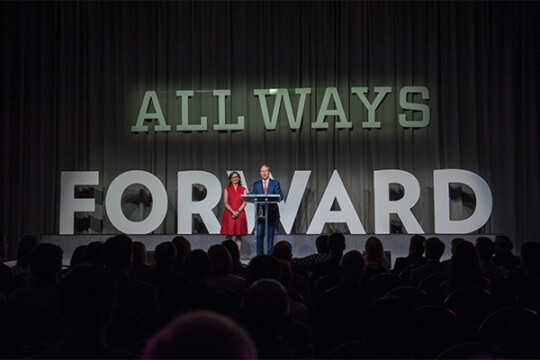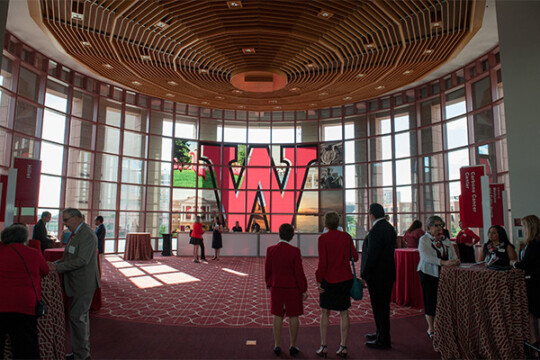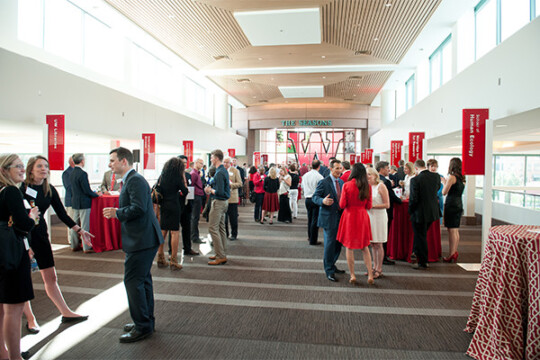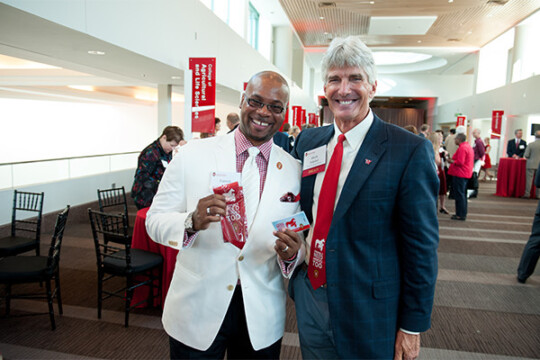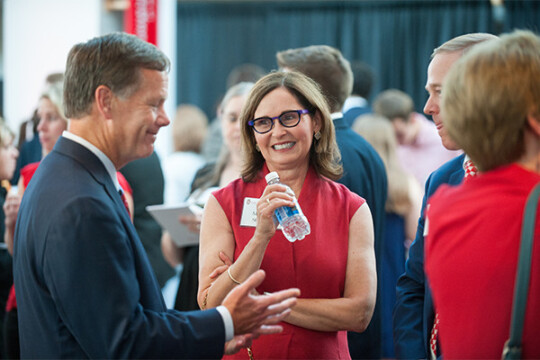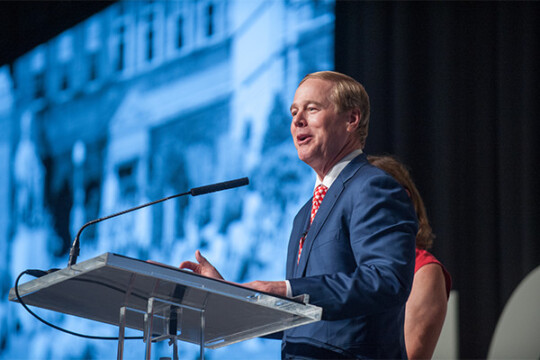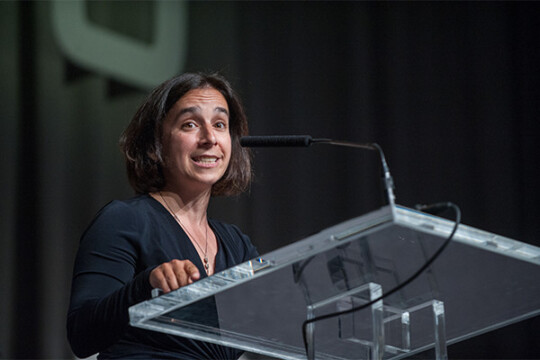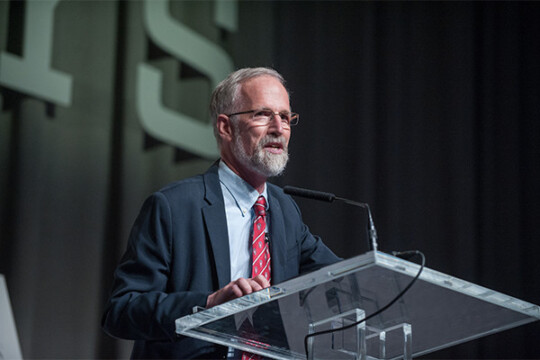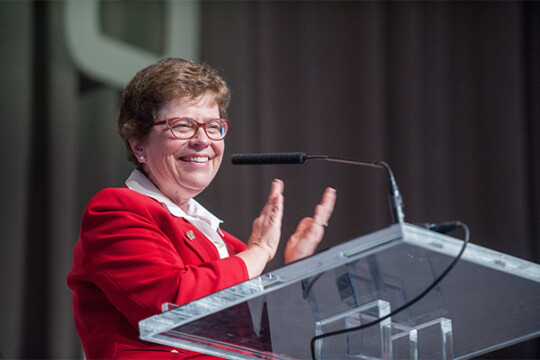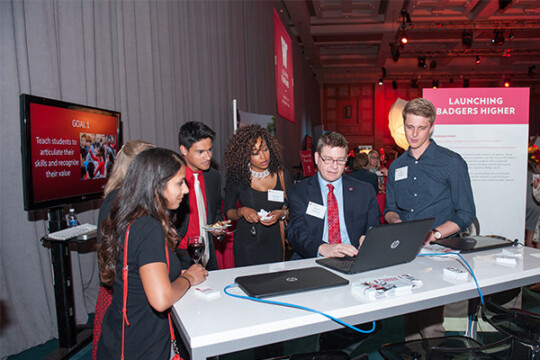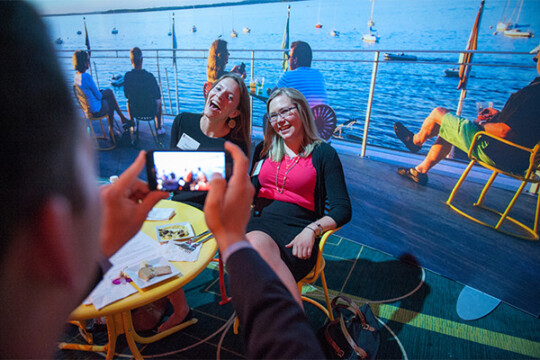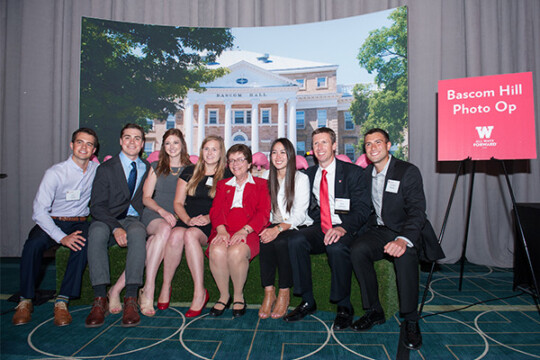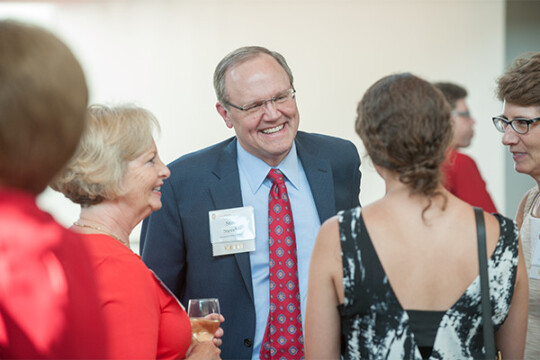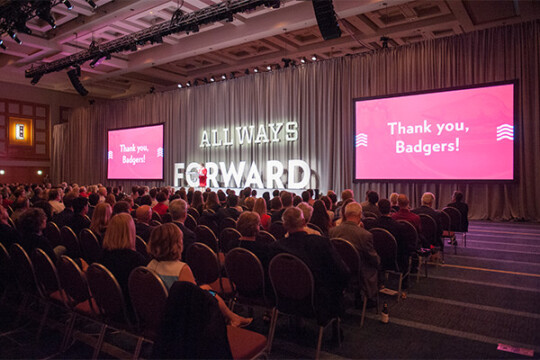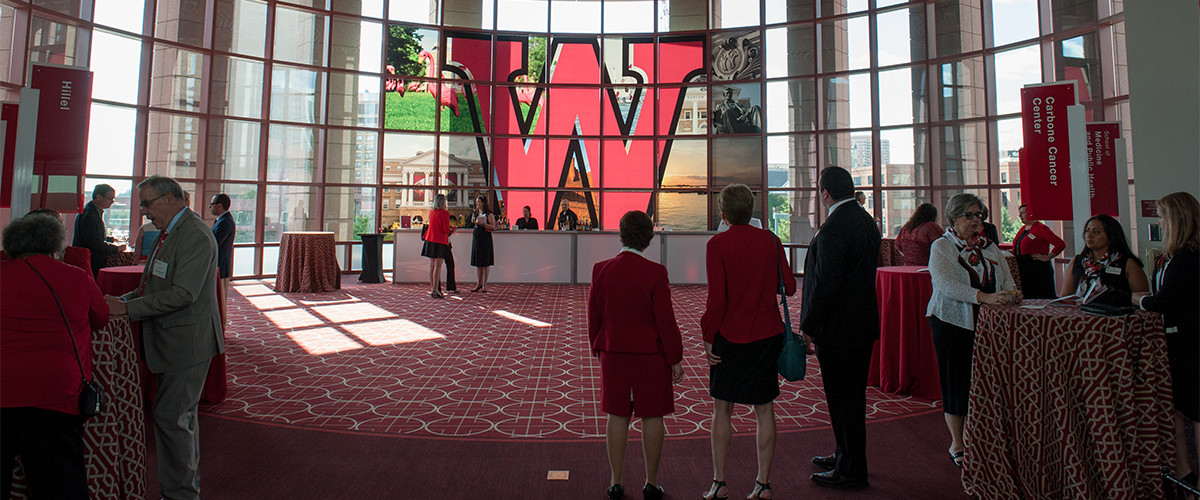
Wisconsin isn’t the only Badger state — Minnesota has experienced the benefit of being home to more than 23,000 UW-Madison alumni. Last night, more than 200 them gathered in the Minneapolis Convention Center to celebrate the impact that their alma mater makes in Minnesota and around the globe and to join in the university’s All Ways Forward campaign.
“[It’s] a moment when it’s useful to think not only about what we must do, but why great public universities matter so much to this nation.”
Rebecca Blank
“We are at the crossroads of our past and our potential, at an historic moment for UW,” said UW-Madison chancellor Rebecca Blank. “[It’s] a moment when it’s useful to think not only about what we must do, but why great public universities matter so much to this nation.”
The event brought several top UW researchers to Minneapolis, including pathologists Kristen Bernard and Matthew Aliota, who are studying ways to defeat the Zika virus; physicists Francis Halzen and Megan Madsen, whose IceCube research station in Antarctica is tracking elusive neutrino particles; School of Education assistant professor Erica Halverson; and anthropologists Sarah Traynor and Caroline VanSickle, who helped to discover the hominid species Homo naledi in South Africa.
All Ways Forward is the UW’s fourth comprehensive campaign, in which the UW Foundation aims to inspire $3.2 billion in private gifts to the university. The campaign began in 2013 and crossed the halfway point to its goal earlier this year.
The event’s emcees were UW alumni Michael and Mary Sue Shannon, who recently became co-chairs for the All Ways Forward campaign committee, taking over a role held by alumni John and Tashia Morgridge for the last two years. The Shannons gave the event’s keynote address, in which they issued a call to Badgers to live out the Wisconsin Idea, the UW’s ideal of translating research and study into practical benefit for people around the globe.
“We are all living ambassadors of the Wisconsin Idea,” said Michael Shannon. “We come from far and wide with the shared belief that the boundaries and ambitions of our university do not stop at the university city limits. … Imagine the kinds of problems we can solve together if we support our future generations and faculty.”

